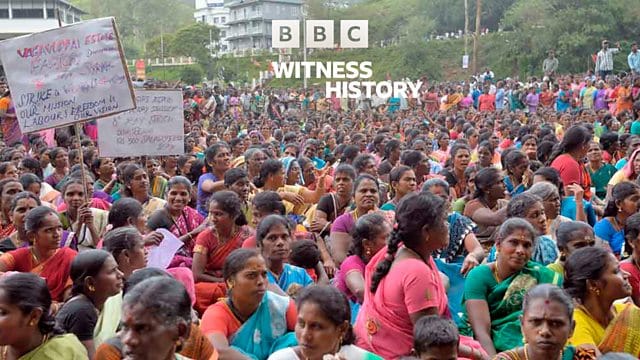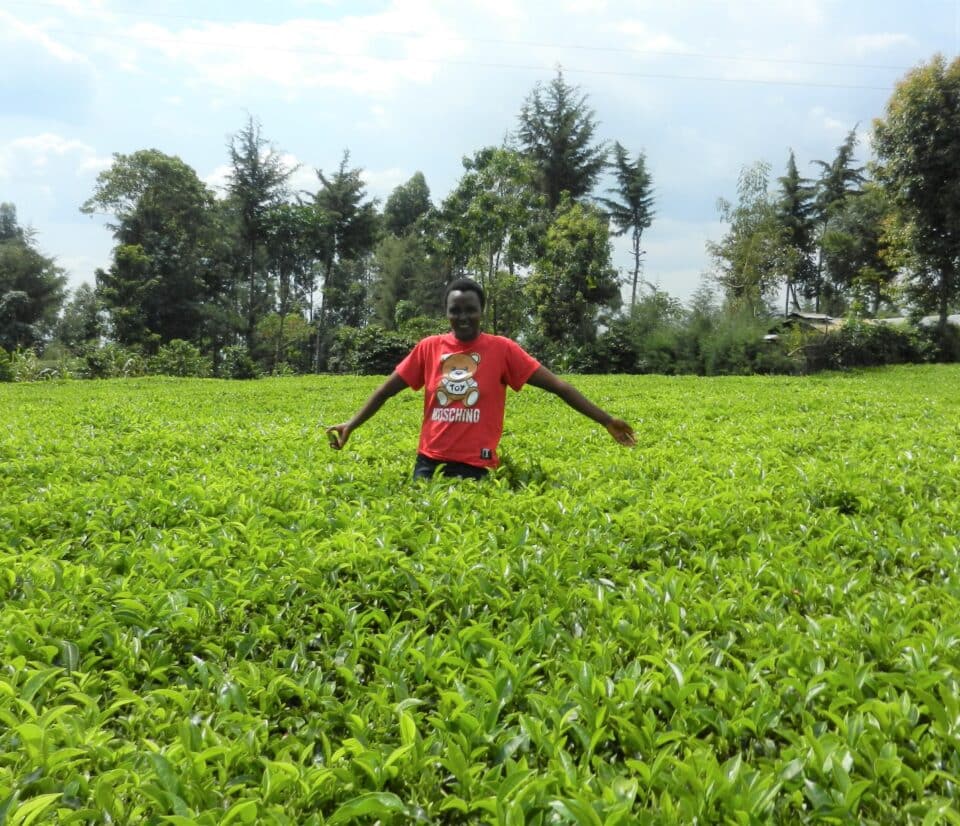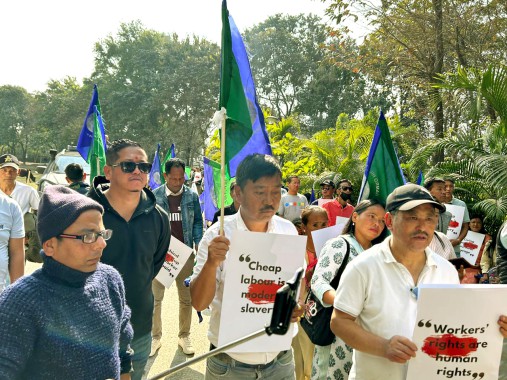The strike that shook up India’s tea industry
Ten years ago women tea pluckers in Munnar, South India, went on strike demanding a 20% bonus and better daily wages and benefits. On October 1st this year, the BBC World Service’s Witness History programme covered their story, interviewing Rajeshwary – one of the leaders of the strike and thus an active witness in this unique piece of history.
It was a story that sent shockwaves through the tea industry at the time, and there was much excitement among the media who revelled in phrases such as “Jasmine Revolution”. Once the strike was over the story quickly faded from the news. THIRST has since strived to keep it alive through blogs, talks and briefings, so we are delighted that the BBC has brought it back into the public eye. As a 9 minute programme it’s understandable if some nuances are lost – so we offer here a few corrections and explanations.
The media at the time billed it as a tale of a group of downtrodden women who “took on a multinational company and won.” The phrase was repeated on the Witness History programme, recounting how, after government intervention, the company finally agreed to pay the expected 20% and to increase their wages to 301 INR (about 3 USD) per day.
But in reality, the “win” was a partial, short-lived, double-edged sword. For the workers, the increased daily rate (far less than the 500 INR – about 5 USD – they were demanding) was conditional on them plucking more tea per day. They got their 20% bonus that year, but subsequently it went quietly back to 10%. For the company, taking the hit of a 20% bonus in a year when prices and profits were down, had financial repercussions that resonated for years.
Witness History quoted another BBC documentary that was made at the same time as the Munnar uprising, describing appalling housing and hygeine conditions for tea workers in India. This was misleading because, although the Munnar workers had legitimate cause to call for better pay and conditions at the time, the other BBC documentary was about Assam, over three thousand kilometres away, where conditions were much poorer than in Munnar.
The underlying causes of the strike (and of all the strikes reverberating across the industry to this day) remain firmly in place despite that temporary “win”. They are far more complex than the commonly implied image of greedy employers wilfully underpaying their innocent workers. The mechanisms that keep tea workers worldwide underpaid and disempowered involve multiple interlinked factors including the low price of tea (often below the cost of production); unequal power dynamics at every level of the value chain; trading systems that are skewed in favour of buyers; poor – or poorly implemented – labour laws and the persistence of colonial systems and attitudes towards workers.
The women who organised the strike went on to form a trade union called Pempilai Orumai (Unity of Women – to our knowledge the only trade union created by and for women tea pluckers). THIRST has interviewed Rajeshwary, its General Secretary, in the past and heard how the trade union now has only 250 members and struggles to make itself heard.
But, as we hear on the Witness History programme, Rajeshwary remains upbeat and determined to focus on the positive outcomes of the strike. “Only after our 2015 protest hundreds of thousands of women became empowered,” she says “before that our women didn’t go out much, it was only after our protest campaign that our women started participating in sports like football and volleyball and joining women’s groups… now we all are living like humans. We are not slaves. We are not animals. We all are humans.”
She could be speaking for all tea workers and farmers. They are all humans and all have human rights. But their human rights will continue to be at risk until the Victorian system that was established to extract the maximum amount of work from them to make the maximum profit for a colonial power is transformed into a fair and resilient industry with trade and employment terms that are fit for the 21st century.
THIRST CEO, Sabita Banerji, who also witnessed the strike, provided the broader context of the history of the tea industry in India in the subsequent History Hour programme.




